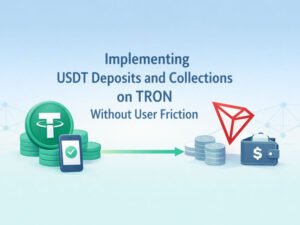Did you know about the important role that grease traps play in your commercial kitchen and industrial kitchen? They are crucial to prevent fats, oils and grease from clogging your sewer system and causing damage to your plumbing.
However, proper grease trap cleaning is essential to prevent blockages, unpleasant odours and costly repairs. That is why it is vital to schedule regular cleaning for your grease traps to protect your plumbing, human health, and your business’s reputation.
Effective grease trap maintenance, including regular trap cleaning, disposal and reporting to ensure compliance with local regulations, is essential. This is especially critical in industries such as a restaurant, cafe or catering company.
Investing in professional grease trap cleaning services will help you meet regulatory requirements, reduce the grease trap smell and maintain your grease traps to prevent costly repairs or even damage to your sewer system.

How Grease Traps Work
Grease traps are used to slow the flow of wastewater, to separate solid and liquid waste. Food particles will sink, while oil and fats rise to the top of the wastewater The separation occurs because of internal baffles and outlet points.
Regular baffles inspection, and traps audits along with scheduled cleaning will maintain your trap condition and prevent overflow that could lead to a major spill. Regular maintenance schedules also ensure that your grease arrestors continue working.
Professional grease trap cleaners remove accumulated grease trap waste using vacuum trucks specifically designed for efficient cleanup.
Examples of Grease Trap Waste
A few examples of grease trap waste include:
- Fats, oils, and grease, known as FOG
- Accumulated food particles.
- Sediment from Trade waste.
- Greasy sludge from liquid waste.
The Importance of Grease Trap Cleaning for Your Business
Keeping your grease trap clean is essential to maintain your business and keep operations running smoothly. It helps to protect your staff and customers while maintaining your business reputation.
Here are a few reasons why proper grease trap cleaning is imperative:
Prevents Drainage Issues from Liquid Waste Such as Fats, Oils, and Grease
Fats, oils, and grease solidify over time, leading to drain blockages. Scheduling regular grease trap cleaning services helps to prevent blockages and improves your wastewater flow.
Maintains a Healthy Work Environment
Built-up grease trap waste is a health hazard that leads to unpleasant odours and an unhygienic kitchen. Therefore, grease trap services offer an efficient solution to keep your kitchen clean and safe.
Reduces Fire Hazards and Other Risks
Some oils, grease, and fats could potentially lead to a fire hazard, in which case grease trap maintenance will reduce fire hazards in your kitchen. It will lower your risk of damage or potential injuries and protect your kitchen equipment.
Ensures Regulatory Compliance
Local water authorities and health departments impose strict rules on grease trap cleaning and maintenance. Failing to maintain your grease trap could incur hefty fines and even shutdowns of your business. Grease trap cleaning services will help to keep your business compliant with all necessary regulations.
Supports Sustainable Practices
Regular grease trap cleaning also supports your commitment to eco-friendly practices. Many service providers recycle the greatest waste into biofuels or animal feed to support resource recovery.
Reduces the Need for Costly Repairs
Grease trap build up could easily lead to clogged drains, damaged plumbing and even an emergency. These factors are expensive and cause downtime in production. Regular cleaning helps to avoid costly repairs and unnecessary expenses.
Grease Trap Cleaning Frequency for Commercial Kitchens and Industrial Kitchens
The question often beckons as to when the best time is for grease trap cleaning. Well, there are some factors that influence the schedule of grease trap cleaning services.
The following are a few factors that influence your grease trap maintenance schedule:

Factors that Influence Grease Trap Cleaning Frequency
- The size of your grease trap, small grease traps in high-volume kitchens require more regular maintenance.
- Your grease trap condition.
- The volume of wastewater and liquid waste that you produce.
- The frequency of your business hours.
- The types of food you prepare and the amounts of FOG they produce.
- The number of meals you prepare daily.
Grease Trap Cleaning Services
Grease trap cleaning services offer an efficient cleaning service according to your desired schedule. The service includes scraping, pumping and disposal of grease trap waste using grease trap pumps, spill control materials and vacuum trucks.
These services help to reduce sewer damage and grease trap smell. Many companies also offer trap audits, lids reporting and equipment checks to ensure your kitchen operates at optimal levels.
What are Grease Trap Services and How Do They Work
The service provider offers tailored services to clean and maintain your grease traps on a scheduled or one-off basis. They also often provide emergency services in case of blockages or spills.
The service provider starts by lifting the lids of the traps and conducting a trap inspection. They will then pump out all the grease trap waste, scrape the walls and check outlets for abnormalities. The team ensures proper disposal or recycling of waste and rest your grease trap for optimal use.
Ensuring Regular Grease Trap Maintenance
Regular grease trap maintenance is an essential part of your kitchen routine. These services are especially crucial during business hours and peak hours or seasons to maintain your grease trap and kitchen performance.
It is also vital to check with your local water authority and local regulations to ensure you are following the right cleaning frequencies.
Maintaining Your Grease Trap Pump
Your grease trap pump requires regular service and maintenance to operate properly. Always look for any signs of wear, strange noise, or poor suction and replace worn parts promptly to ensure efficient clean up and prevent total failure.
Grease Trap Waste Management
Effective waste management is a crucial process, especially if you are running a kitchen. It starts with proper waste collection, treatment and disposal of grease trap waste. Regular grease trap maintenance and cleaning are a part of effective waste management.
Grease Trap Waste Management Tips:
- Create a clear grease trap maintenance schedule.
- Partner with professional grease trap service providers for regular cleaning.
- Store chemicals and hazardous materials separately.
- Train your staff on quick spill response procedures and waste handling.
Conclusion
To maintain compliance, safety and the reputation of your business, it is imperative to maintain your grease traps and employ regular grease trap cleaning and scheduled maintenance.
Proper waste management helps to protect your kitchen, staff, customers and swerve system from any issues or damage.
Working with professional grease trap cleaning services helps you stay compliant, reduces the grease trap smell, and avoids any costly repairs.
Grease trap cleaning services are a smart investment for your business needs, reputation, and the environment.









